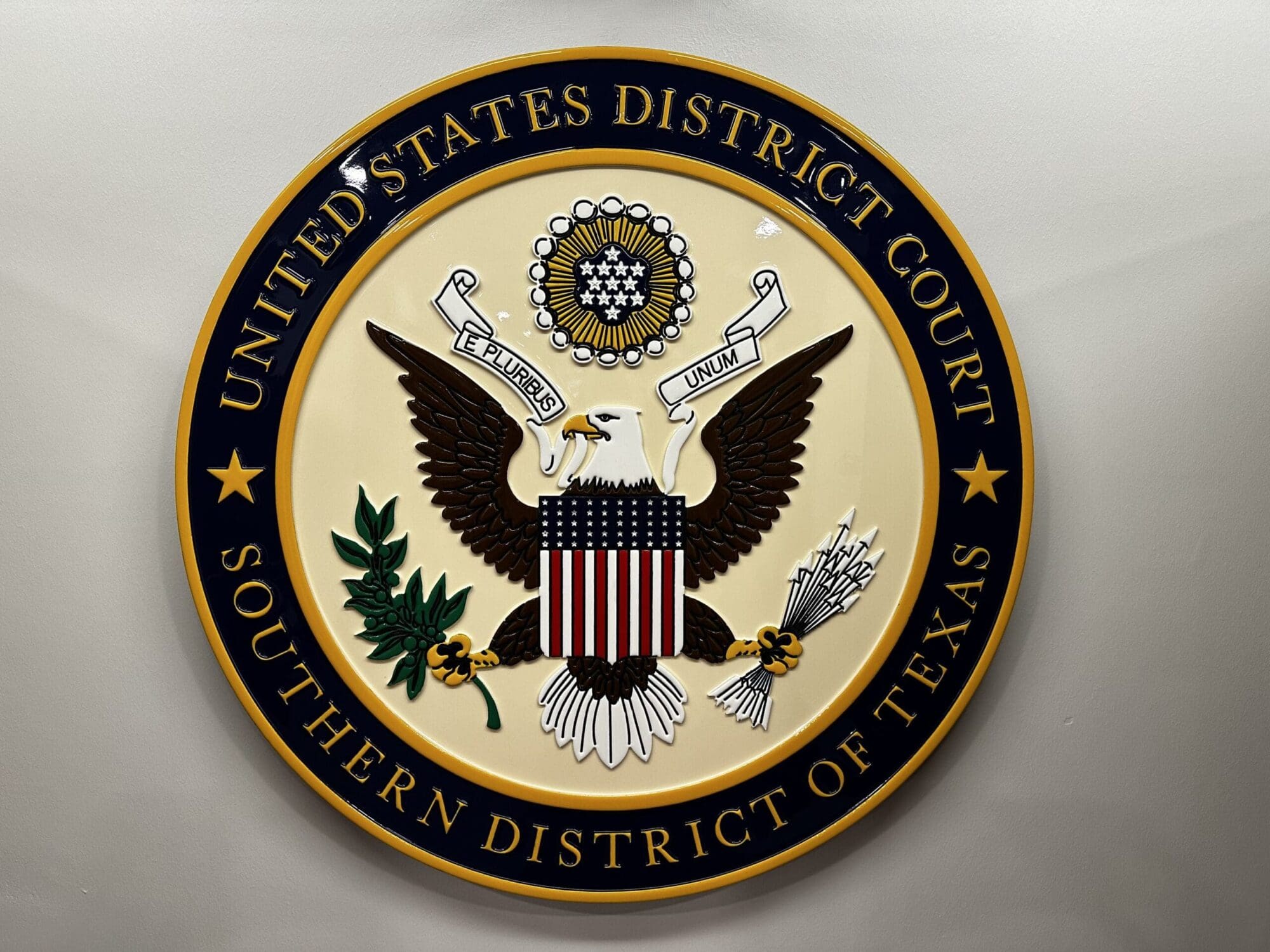Texas senators on the State Affairs Committee tore into Lottery Commissioners amid fallout surrounding the commission’s improprieties.
After a long hearing on Monday, senators voted 8-0 to pass Senate Bill 28, a measure filed by State Sen. Bob Hall (R-Edgewood) that would ban the sale of lottery tickets through online courier services.
Couriers allow online customers to purchase lottery tickets from brick-and-mortar stores without going to the store. Instead, couriers can buy their tickets in person for a premium and send the customer a picture of the purchase and any potential winnings.
The couriers began operating in Texas around 2015 or 2016, after the initial Texas Lottery Act was signed in August 1991. Hall believes the uncritical adoption of the process is symptomatic of a larger problem with the Texas Lotto.
“One step at a time, the crime syndicate inside the Texas Lottery Commission completely destroyed what the 1992 Texas Legislature intended to be an honest game of chance, with specific guardrails to protect minors and addicts,” said Hall before the hearing started.
Lt. Gov. Dan Patrick announced last week that he supported Hall’s measure.
Upon investigating an illicit lottery ticket reseller that sold a $83.5 million winning ticket, Patrick discovered that “the retail establishment that sold the winning ticket in the front of the store was owned by the courier service that purchased the ticket behind the wall in the back of the store.”
“If people are going to have confidence in the lottery, we have to be sure that no one has an advantage,” elaborated Patrick. “We’re not suggesting anything illegal, but this is not the way the lottery was designed to operate.”
Senators briefly discussed recent happenings on the lottery, including Patrick’s statements, before they began hearing questions from witnesses.
State Sen. Paul Bettencourt (R-Houston) asked Hall what he believes the likelihood is that the Texas Lottery Commission has engaged in money laundering with its courier service in a range “from zero to one hundred percent,”
“Probably about 90 percent,” replied Hall.
“The Legislature … was very diligent in laying out a set of basic ground rules, … and they ignored that,” added Hall. “Not just that they ignored it, but they specifically wrote rules to allow it to happen and then pretended like they had no power to change it.”
Bettencourt called the scheme “probably the most wide-open fraud that we’ve had in Texas’ history.”
Texas Lottery Commission Executive Director Ryan Mindell released a policy statement just before the hearing on Monday morning, pledging that the commission would begin taking steps to ban courier services regardless of whether the Legislature takes new action.
The commission says they intend to “exercise this authority through administrative enforcement proceedings to revoke the lottery ticket sales agent license of a retailer that works in concert with a courier, whether under a common ownership arrangement or otherwise.”
Patrick wrote on X that the announcement was not good enough, and the investigation will continue.
“The Senate passed a bill to end courier services in 2023 by a vote of 29-2, and someone convinced the House to kill it,” stated Patrick. “If the Lottery Commission thinks this ends our investigation, they are wrong. I promise the people of Texas that we will restore the integrity of the Texas lottery so people can trust its fairness. Otherwise, the Senate will end the Lottery this session.”
Gov. Greg Abbott also announced just before the hearing that he would be directing the Texas Rangers to investigate “two incidents involving the Texas Lottery, including a bulk purchase of tickets in April 2023 and the recent $83.5 million win through a courier service.”
The April 2023 incident was recently reported on by the Houston Chronicle, which claims to have unearthed footage showing potential child labor tied to a $95 million Texas Lotto operation that has been likened to money laundering.
Senators brought up all of those concerns when questioning three Texas Lottery Commissioners and the commission’s executive director during the hearing on Monday.
Mindell told State Sen. Judith Zaffirini (D-Laredo) that if SB 28 eventually passes, he expects to have the resources to fully enforce it. He then reiterated statements made in his recent policy statement.
However, Hall pushed back. He noted that as late as last week at a Senate Finance Committee hearing, commissioners have said they “do not have the authority to do anything about the couriers.”
“I think at the Senate Finance hearing, there was a lot of good issues raised. And I think one of the quotes on there to the board was, ‘Hey if you’re looking for direction, you have it now.’ I think that combined with the actions and activities of the past two weeks … made us see that we have to take action now,” responded Mindell.
“That still doesn’t answer my question,” said Hall. “Last Wednesday, just a little more than a week ago, you adamantly denied having the authority to do it. What happened that all of a sudden you decided that you did have the authority?”
Robert G. Rivera, chairman of the commission, claimed that up until the Wednesday hearing, the legal advice that he received said it was outside his authority.
“Do we have that authority? Maybe we do, maybe we don’t. But the fact, though, is that I would like to move forward and have that discussion. And so, a week from tomorrow, we will officially have that discussion,” said Rivera.
State Sen. Mayes Middleton (R-Galveston) noted that during Sunset Advisory Commission hearings, the commission appeared to merely ask for couriers to be equipped with “guardrails” rather than abolish the practice entirely.
“So, what has changed since the Sunset hearing? Where all of a sudden, you have the authority, and all of a sudden, you’re saying this is a problem? And the ask is no longer, ‘Please ratify what we did,’ it’s, ‘We could support y’all getting rid of the carriers.’ What changed?” Middleton questioned Mindell.
Mindell rejected the characterization that commissioners had asked lawmakers to ratify their courier process during the sunset hearings. Instead, they insisted they had been seeking guidance on the issue for some time.
Middleton further pointed out that the commission admitted in one of its sunset reports that it gets most of its policy recommendations from its main vendor, IGT Global Solutions Corporation.
“It almost seems like at this point it’s [Texas Lottery] run like organized crime, and somehow this has all just been exposed and … that was hidden from us as a Legislature,” said Middleton.
Bettencourt proceeded to read a statement from Patrick that called for the investigation issued earlier in the day by Abbott to be expanded in light of the commission’s recent public testimony.
Patrick wants the investigation to cover “any and all matters related to the Lottery Commission first allowing lottery couriers into Texas, and any and all possible crimes internally or externally arising from the Lottery Commission’s actions or failures to act.”
“We gave up probably, on a fraudulent win, $57.7 million,” Bettencourt said in a fiery remark to Mindell, adding, “Quite frankly, if I was on your board, I’d vote to fire you. Because I have no confidence in what you’re telling us.”
An attorney providing legal advice to the Texas Lottery Commission said he flagged the courier process as a risky business some years ago but did not shoot it down entirely. Former Texas Lottery Commission Executive Director Gary Grief went through with it despite the concerns raised.
“This bill specifically addresses the issue of conspiracy because this is not something that could happen all by itself,” said Hall, continuing to grill the commission on an instance where one individual won the lottery 147 times.
“Do you consider that to be a lot?” Hall asked about the 147 wins.
“It’s certainly uncommon,” replied Mindell.
“It is almost beyond my ability to calculate the odds that one person could win this 147 times,” said Bettencourt, declaring, “I can’t even tell you how many red flags are up. It’s like there’s a forest of them, and they’re all burning, and everybody can see it except you.”
Mindell and Rivera informed senators that they would review the $83.5 million win under scrutiny by Patrick before dispensing the monies to the winner.
Hall also called commissioners to review their contract with IGT, which Mindell said is already being discussed.
Joseph Lapinski, a senior director for IGT in Texas, testified before senators that his company fulfilled the request to install roughly 47 terminals at Winner’s Corner, the store that Patrick visited last week.
The employee said that 42 of the 47 terminals have since been removed. However, the action only took place after the Texas Lottery Commission had begun to face the ire of lawmakers.
“We don’t have any relationship or engagement with couriers themselves,” said Lapinski.
Nevertheless, Middleton highlighted that “couriers own the licenses to sell tickets.”
“Winner’s Corner is owned by Jackpocket. And it’s sold—the latest number I had from 2022—is $89 million worth of tickets. So, you do have interaction with the couriers,” added Middleton.
The committee heard additional testimony from several couriers, including representatives from Lotto.com, Jackpot.com, DraftKings, and DraftKings subsidiary Jackpocket.
All the representatives opposed SB 28 but voiced support for House Bill 3201 by State Rep. John Bucy (D-Austin), which would regulate couriers.
State Sen. Bryan Hughes (R-Mineola) focused his questions on the Winner’s Corner store, which is owned by DraftKings subsidiary Jackpocket.
Hughes asked how much revenue from Winner’s Corner was generated from board games and other items it claims to sell other than lottery tickets but was met with non-answers from the DraftKings and Jackpocket representatives.
“Do I need to send that to you in writing? Or do we have your promise that you will answer each of those questions?” Hughes asked.
“You have our promise,” said Peter Sullivan, senior vice president of lottery at DraftKings and the founder of Jackpocket.
Andrew McVeigh, president of Texans for Fiscal Responsibility, said during public testimony that his organization was in favor of SB 28 but ultimately wants to see the Texas Lottery Commission eliminated.
“Rather than being a responsible source of revenue, the lottery has become a drain on taxpayers and a vehicle for financial abuse and criminal activity,” said McVeigh. “This system functions much like a regressive tax. It fuels gambling addictions and disproportionately affects lower-income families.”
After SB 28 passed the committee, Hall said in his closing statement that “Texas is not open for gambling.”
Hall also called upon Abbott to issue an executive order to immediately terminate the Texas Lottery Commission and broaden the investigation until at least 2015.
Middleton told Texas Scorecard following the hearing that it is clear “the Texas Lottery Commission is a rogue government agency.”
“They have bent the law, to likely the point of breaking it, in order to allow lottery tickets to be sold by phone app,” stated Middleton. “Clearly, the agency was taking direction from gambling interests and not direction from the clear intent of the legislature that prohibited ticket sales by phone.”
He further described the Houston Chronicle report of minors involved in printing lottery tickets as proof that “we must hold government agencies accountable that ignore the law and thereby violate the separation of powers.”





